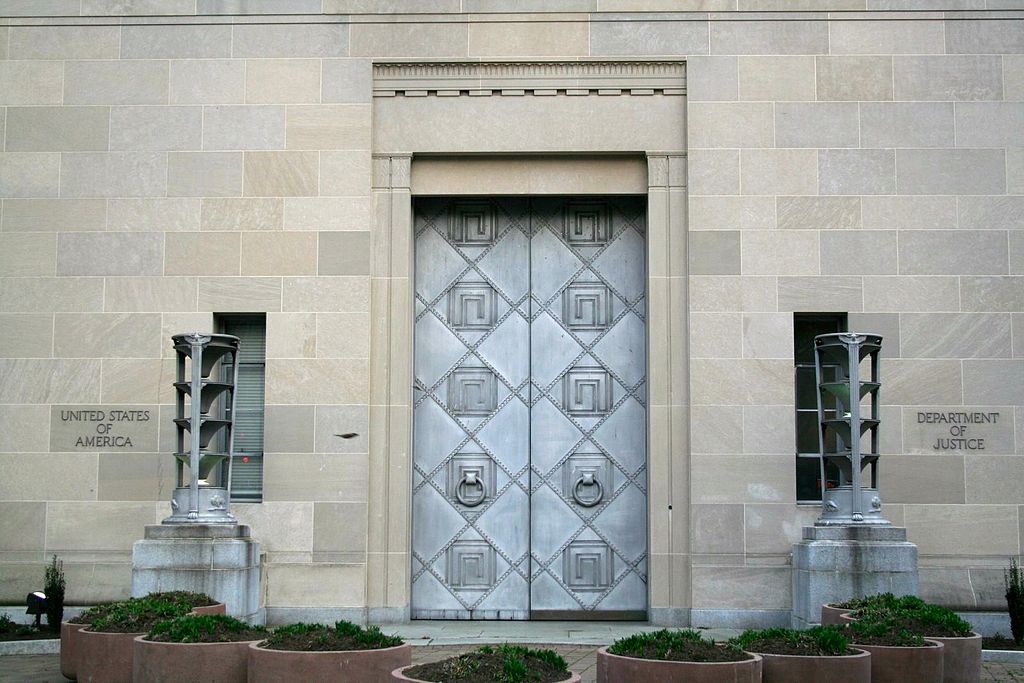President Biden has repeatedly violated the post-Watergate norm against commenting on Justice Department investigations.

President Donald Trump relentlessly disregarded the post-Watergate norm that a president should not comment on pending Justice Department investigations, especially ones that concern the president, senior executive branch officials, and political rivals. President Biden pledged to respect and restore the norm. But he has not done so. To the contrary, he has often violated it—more so than any other president, save, of course, for the incomparable Trump. And Biden and his aides have, more broadly, contributed to the perceived politicization of the Justice Department.
The independence norm is designed to check the appearance of presidential meddling with Justice Department decisions that affect presidential interests. The ultimate concern is to preserve the rule of law by ensuring that Justice Department investigative and prosecutorial decisions are and appear politically fair.
Biden violated this norm when he commented on the then-pending Justice Department classified documents investigation into his political opponent by stating that Trump acted in ways that were “just totally irresponsible” and may have “compromise[d] sources and methods.” After the Justice Department began to investigate Biden for classified documents found at the Penn Biden Center in Washington and at his residence in Wilmington, Delaware, the president stated in an interview with ABC News that he had been advised not to comment on the matter. But he did so anyway, at length, in ways that sought to minimize the seriousness of his legal situation compared to Trump’s.
When Special Counsel Robert Hur issued a legally exonerating but very critical report about Biden’s handling of classified documents, the White House attacked Hur, and Vice President Kamala Harris claimed that Hur was “clearly politically motivated” and lacked integrity. And the White House criticized Attorney General Merrick Garland through anonymous senior sources for (among many other things affecting Biden’s interests) not demanding alterations to the Hur report. These statements are political fair game and, because the matter is resolved, technically do not violate relevant norms. But they are attacks on the legitimacy and integrity of the department that Biden pledged to preserve, and contribute to its politicization.
And then there are Biden’s comments related to the Justice Department’s investigation into the Jan. 6 events. In October 2021, he urged the department to prosecute the Jan. 6 Committee subpoena holdouts, including Trump’s aides—a statement he later acknowledged “was not appropriate,” and that caused the Justice Department to try to protect itself by insisting that it would “make its own independent decisions in all prosecutions based solely on the facts and the law.”
The following spring Biden reportedly told his “inner circle” that Trump should be prosecuted and that Garland’s investigation was going too slowly—a message that Garland received in the pages of the New York Times, seven months before he appointed Special Counsel Jack Smith to investigate the matter. That investigation led to indictments against Trump but as yet, eight months before the presidential election, no trial. Biden recently “grumbled to aides and advisers that had Garland moved sooner in his investigation into former President Donald Trump’s election interference, a trial may already be underway or even have concluded,” the world learned from Politico.
We do not know if Biden knew these last two statements would appear in public. But they did, thus making his White House responsible for violating the relevant norm even if Biden did not. And Biden is clearly responsible for his legally controversial claim that Trump on Jan. 6 “certainly supported an insurrection” even as his Justice Department prosecutes Trump for the Jan. 6 matter.
These statements in the aggregate support what many have suspected of the Biden Justice Department’s rush to prosecute Trump before the election: that the president and his aides believe, as polls confirm, that Biden will benefit in the presidential election if his Justice Department is able to convict Trump before November.
If Smith himself is influenced by the November presidential election date—which one might infer from his statement to the Supreme Court about the “imperative” to prosecute Trump “as promptly as possible”—then he is also violating Justice Department rules about election interference.
But even if he is not so influenced, the timing of the prosecution, on top of Biden’s norm-breaking public statements, the president’s leaked statements, Biden-supportive commentary that the fate of the country rests on convicting Trump before the election, the many other legal efforts by elected judges and prosecutors who are Democrats to convict Trump or keep him off the ballot, and the aggressive efforts by Trump and his supporters to frame all of these matters for maximum political gain—all make it impossible for the prosecution of Trump to appear non-political before approximately half the country.
Perhaps worse, Biden’s multiple violations of the norms protecting Justice Department independence suggest that Trump succeeded in his efforts to kill them. Norms have a chance to survive an onslaught if their efficacy is reestablished after the initial assault—which is what Biden pledged to do. But Biden’s manifold follow-on violations increase the likelihood that subsequent administrations will be less inclined to discern pressure, or precedent, to follow the ostensible “norm” when inconvenient.
– Jack Goldsmith, Published courtesy of Lawfare.


